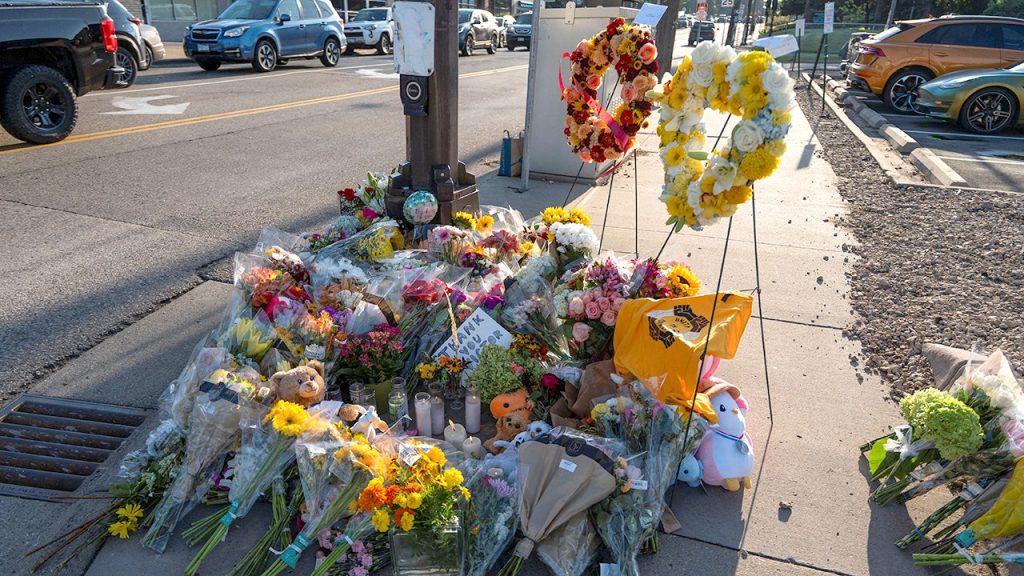Mother of Minneapolis School Shooter Refuses to Cooperate with Investigators Following Tragedy
In the aftermath of the tragic shooting at Annunciation Catholic Church in Minneapolis that claimed the lives of two children and injured 18 others, investigators are facing a significant obstacle: the shooter’s mother, Mary Grace Westman, is refusing to cooperate with authorities. Minneapolis Police Chief Brian O’Hara revealed during a Thursday news conference that while dozens of interviews have been conducted with family members, friends, and witnesses, they have been unsuccessful in speaking with the shooter’s mother. “I know we have not been successful in talking to the shooter’s mother, yet, at this time,” O’Hara stated, adding that efforts to establish communication continue. Court documents from 2019 show that Mary Grace had applied for her child to legally change their name, writing that the “minor identifies as female and wants her name to reflect the identification.” The reasons behind her current refusal to speak with investigators remain unclear, though authorities confirmed they have been in contact with the shooter’s father.
The investigation has revealed significant connections between the shooter, 23-year-old Robin Westman, and the church where the violence erupted. Chief O’Hara disclosed that the shooter had previously attended Mass at Annunciation Catholic Church while enrolled at the attached school. Perhaps most notably, the shooter’s mother was formerly employed by the parish “for some time,” establishing a clear connection between the perpetrator and the specific location targeted. Investigators are still working to determine which of three associated addresses was Westman’s primary residence immediately before the shooting, as this information could provide crucial context for understanding the planning that preceded the attack. The shooting occurred around 8:30 a.m. on Wednesday during Mass, with the attacker firing dozens of rounds into the church, shattering stained-glass windows and forcing terrified students and parishioners to seek cover.
The investigation has uncovered disturbing evidence suggesting ideological motivations behind the attack. Authorities found a manifesto that the shooter had scheduled for release on YouTube, which has since been removed from the platform and is now a central focus of the investigation. FBI Director Kash Patel characterized the attack as an act of domestic terrorism “motivated by a hate-filled ideology,” pointing to anti-Catholic and anti-religious references in the shooter’s writings. The manifesto reportedly contained disturbing content, including footage of Westman at the scene of the shooting. Additionally, the shooter expressed hatred toward Jewish people, with writings containing phrases like “Israel must fall,” “Free Palestine,” and explicit language related to the Holocaust, according to Patel’s statements.
The human toll of this tragedy is immeasurable, particularly for the families who lost children in the senseless violence. One grieving father publicly denounced the shooter as a “coward” for taking the life of his 8-year-old son, Fletcher, during what should have been a peaceful Mass service. The shooting has devastated the tight-knit Catholic school community, leaving parents, students, and parishioners struggling to comprehend how such violence could erupt in a place dedicated to faith and learning. The victims include 15 children among the injured, creating a ripple effect of trauma throughout the Minneapolis community and beyond. First responders and community members have rallied to provide support for those affected, though the road to healing will undoubtedly be long and difficult.
The Minneapolis shooting has also reignited national conversations about school safety, gun violence, and the role of prayer and policy in preventing such tragedies. Some public figures, including former White House Press Secretary Jen Psaki, sparked controversy by suggesting that “prayer is not freaking enough” in response to the shooting, drawing criticism from others who viewed such comments as dismissive of faith communities during their time of grief. The political dimensions of the tragedy quickly emerged as various commentators and officials framed the event according to their perspectives on broader social issues. Despite these divisions, local officials have emphasized the importance of supporting the victims and their families while conducting a thorough investigation to understand how and why this attack occurred.
As the investigation continues, authorities are meticulously piecing together the events leading up to the shooting, including the shooter’s movements, communications, and potential warning signs that might have been missed. The refusal of the shooter’s mother to participate in this process represents a significant challenge for investigators seeking to construct a complete timeline and motivation for the attack. Meanwhile, the Minneapolis community faces the difficult task of mourning those lost while supporting the survivors, many of whom are children who will carry the psychological impact of this trauma for years to come. Religious leaders, mental health professionals, and community organizations have mobilized to provide counseling and support services, recognizing that recovery from such an event requires both immediate crisis intervention and long-term care. As more information emerges about the shooter’s background and motives, the community and nation continue to grapple with the devastating reality that even sacred spaces are not immune to the epidemic of violence that has repeatedly scarred American society.


